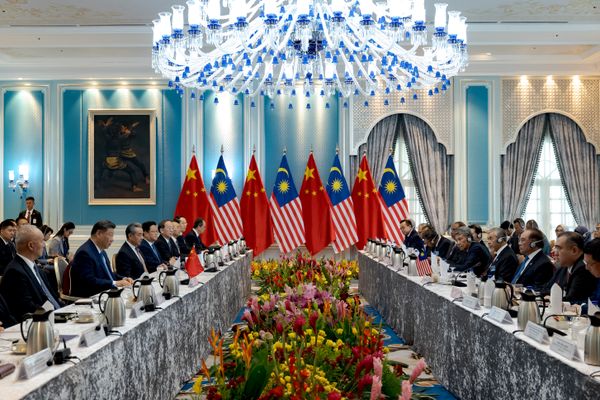By Danial Dzulkifly
SHAH ALAM, April 21 — In the wake of Chinese President Xi Jinping’s high-profile state visit, Malaysia has strategically reaffirmed its multilateral approach to economic diplomacy, carefully balancing its deepening ties with China while maintaining partnerships with other global powers.
Against the backdrop of escalating trade tensions between Washington and Beijing, Malaysia has discovered newfound leverage in its ability to engage multiple economic partners strategically while enhancing its global standing, according to economic analysts.
The meetings, which concluded on April 17, demonstrate Malaysia’s nuanced navigation of its relationship with China, actively pursuing opportunities in high-value sectors such as semiconductors and artificial intelligence and sustainable development.
“It signals strong continuity in Malaysia’s bilateral relations with China, and supports Malaysia’s economic ambitions through strategic opportunities in the fields of technology, sustainability, industrial development, transportation, logistics and education,” said UOB senior economist Julia Goh.
“This is part of Malaysia’s diversification policy, adopting a multilateral approach with key economic partners, and maintaining the country’s neutral stance.
“It is also an opportunity for Malaysia to engage in constructive discussions with our largest trade partner to safeguard and protect Malaysia’s economy through these challenging times,” she added.
[caption id="attachment_397725" align="aligncenter" width="1200"] China President Xi Jinping shakes hands with Prime Minister Datuk Seri Anwar Ibrahim during a bilateral meeting as part of Xi's state visit to Malaysia, at Seri Perdana Complex, Putrajaya, on April 16, 2025. — Picture by PRIME MINISTER’S OFFICE[/caption]
China President Xi Jinping shakes hands with Prime Minister Datuk Seri Anwar Ibrahim during a bilateral meeting as part of Xi's state visit to Malaysia, at Seri Perdana Complex, Putrajaya, on April 16, 2025. — Picture by PRIME MINISTER’S OFFICE[/caption]
Meanwhile, Prof Emeritus Barjoyai Bardai said Xi’s extended three-day visit was a significant diplomatic gesture and reflection of Malaysia’s growing importance in China’s recalibrated trade strategy.
“The fact that the visit lasted three days, when it could easily have been done in one, shows that China wants to signal to the United States that this is an important occasion, and that China is capable of securing support from Malaysia, current Asean chair.”
Barjoyai also explained Malaysia’s emerging role as a value-adding intermediary in the global supply chain.
“The idea is not just to repackage and relabel, but to add value, some degree of processing or transformation, so the original source is obscured,” he said, comparing it to strategies used in other industries.
“It’s a similar strategy to what Iran is doing with oil. Iran can’t export directly to many countries, so it created a floating blending facility near India to mix oil from different sources, disguising its origin before redirecting it elsewhere.
“Malaysia is not expected to absorb China’s redirected trade entirely, but will instead serve as a transit point, a place where goods can be reprocessed, relabelled, or even value-added before being redirected globally.
“Malaysia doesn’t need to absorb everything, just to play a strategic role in the supply chain,” he said.
[caption id="attachment_397637" align="aligncenter" width="1200"] Prime Minister Datuk Seri Anwar Ibrahim greets China President Xi Jinping upon the latter’s arrival at the Kuala Lumpur International Airport on April 15, 2025. — Handout by PRIME MINISTER’S OFFICE[/caption]
Prime Minister Datuk Seri Anwar Ibrahim greets China President Xi Jinping upon the latter’s arrival at the Kuala Lumpur International Airport on April 15, 2025. — Handout by PRIME MINISTER’S OFFICE[/caption]
The visit yielded 31 memoranda of understanding and agreements spanning technology, infrastructure, energy, logistics, and digital economy cooperation, which are critical sectors for future economic growth.
Trade between Malaysia and China has grown steadily, with China remaining Malaysia’s largest trading partner for 16 consecutive years.
In 2024, bilateral trade reached RM484.12 billion, representing 16.8 per cent of Malaysia’s total global trade of RM2.88 trillion.
Despite these opportunities, challenges remain. Malaysia faces higher labour costs compared to regional neighbours like Vietnam, and skill gaps could limit the country’s ability to capitalise on technology transfer from China, said Barjoyai.
“For example, we’ve been planning to bring in Chinese expertise in chip and semiconductor design.
“That benefits us, and on the other end, China can channel smaller consume




